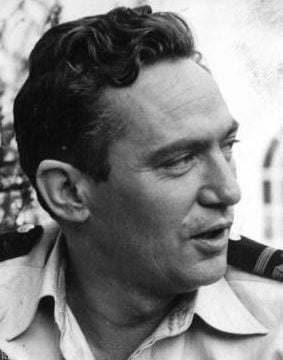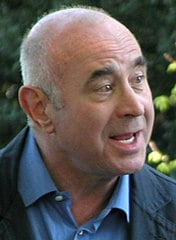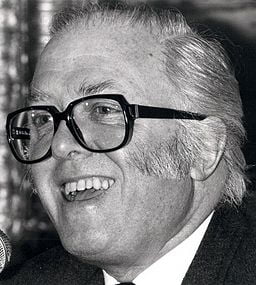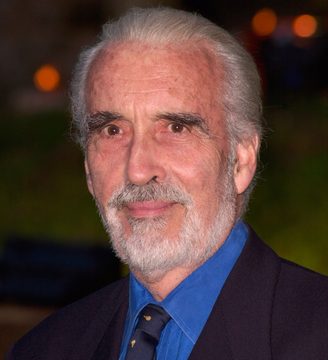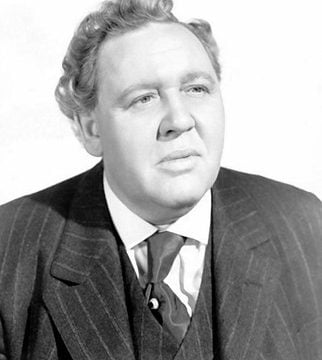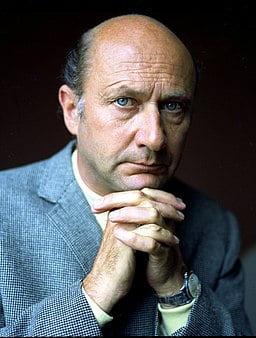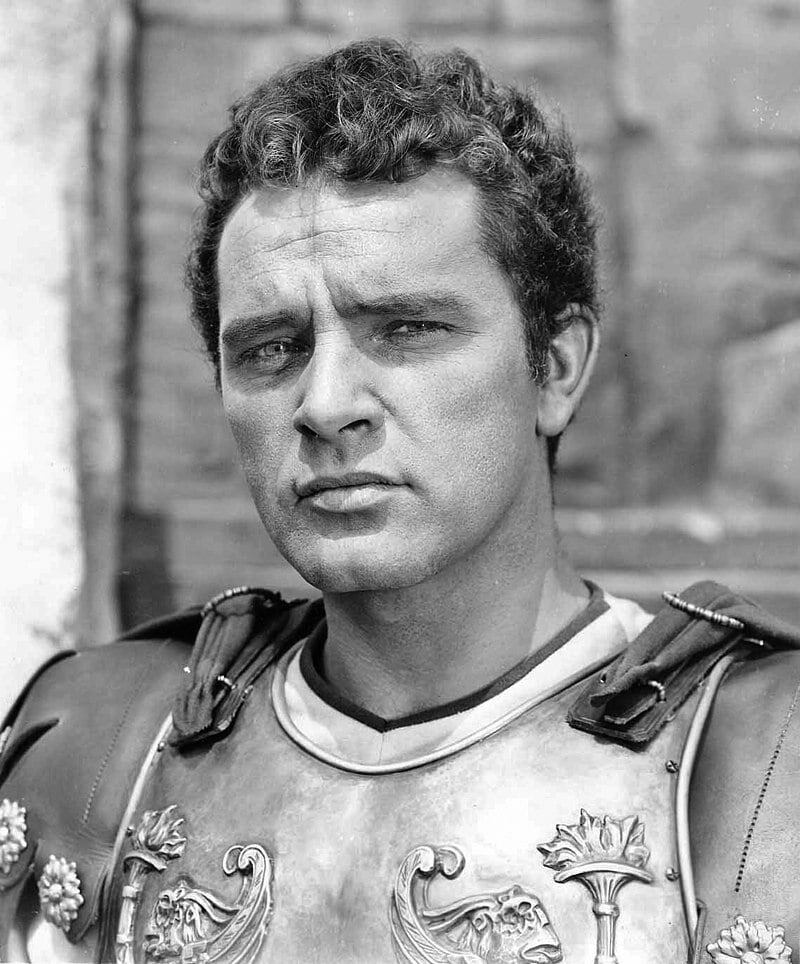
Early Life
Richard Burton was born Richard Walter Jenkins Jr. on 10 November 1925 in Pontrhydyfen, in the now county borough of Neath Port Talbot, Wales. He was the twelfth of the thirteen children of coalminer Richard Walter Jenkins Sr. and barmaid Edith Maude Jenkins. Richard’s mother died when he was barely 2 years old, six days after giving birth to his younger brother, Graham. This saw Richard largely raised by his elder siblings since his father was often absent from the family home.
During his school years, Richard excelled at sports, particularly rugby, which remained a lifelong passion. However, he also proved to be a more than capable academic. During his secondary education in Port Talbot, Burton began to show a great interest in the Arts. It was something at which he also excelled. Nonetheless, he left school in 1941, aged 15, finding work with a local wartime Co-operative. Though, he was already considering his future, which he saw as either being in boxing, religion or singing. Serendipitously, he then decided to join Port Talbot’s Air Training Corps (ATC). By this time, the young Richard was reportedly already a heavy drinker and smoker.
Military Service
It was at the ATC that the young cadet found that the squadron leader was his old schoolmaster, and impresario, Phillip Burton. Richard then joined the Taibach Youth Center, a youth drama group founded by the Welsh character actor, Meredith Jones. It was not long before he was recognised as a talented stage performer. Jones and Burton persuaded Richard that he needed to further his education, which saw him re-enter school in October 1942.
Phillip Burton took Richard under his wing, and in the Autumn of 1943, with the permission of Richard Jenkins Snr, became his legal guardian. Shortly afterwards, Richard Jenkins officially changed his name to Richard Burton by deed poll. He then applied for a six-month course at Exeter College, Oxford, that was offered by the RAF to promising cadets.
In the interim before Oxford, Burton appeared in several stage productions in Liverpool and London, gaining favourable reviews. During his tenure at Exeter College, Burton joined the Oxford University Dramatic Society, where his on-stage talent was again recognised. In late 1944, Burton successfully completed his six-month scholarship at Exeter College, Oxford. He then went to take entrance exams for RAF pilot training but was disqualified because of his poor eyesight. However, he did go on to become a navigator and served three more years in the military. He was first based in Wiltshire, and later, in Carberry, Manitoba, Canada. In December 1947, he left the RAF to re-enter civvie street.
Acting Career
Back treading the boards, Burton soon established himself as a formidable Shakespearean actor. He quickly became renowned for his dulcet baritone voice, which along with rugged good looks, became his trademark. Following this success, he made his film debut in the Welsh drama ‘The Last Days of Dolwyn’ (1949). His early big-screen career consisted of a series of minor roles in films like ‘Now Barabbas’ (1949), and ‘Waterfront’ (1950). In 1952, Burton made the transition to Hollywood, taking the lead role in the romance drama, ‘My Cousin Rachel’. The film earned him a Golden Globe and his first Oscar nomination.
Burton was nominated for an Oscar a further six times throughout his acting career. These were in ‘The Robe’ (1953), ‘Becket’ (1964), ‘The Spy Who Came in from the Cold’ (1965), ‘Who’s Afraid of Virginia Woolf?’ (1966), ‘Anne of the Thousand Days’ (1969) and ‘Equus’ (1977). Burton was never to be awarded the coveted ‘Oscar’, but he did earn two ‘BAFTAs’ and two ‘Golden Globes’ from his many nominations. Some of his other notable films include ‘The Night of the Iguana’ (1964), ‘Where Eagles Dare’ (1968), and ‘The Wild Geese’ (1978). His last screen outing was in the film adaptation of George Orwell’s classic dystopian novel ‘Nineteen Eighty-Four’. It was a performance for which he also received critical acclaim.
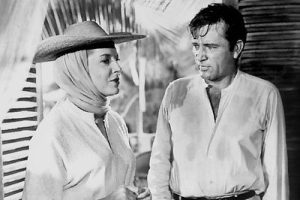
Burton with Deborah Kerr in The Night of the Iguana (1964). Photo credit: Flickr/CC PDM 1.0
Burton’s filmography also included a mostly successful on-screen partnership with the Anglo-American actress Elizabeth Taylor. The eleven-movie collaboration began with ‘Cleopatra’ in 1963. Burton made more than 60 movies during his career but not all of them were well received by either the critics or the public. Some of his spectacular box office flops include ‘Alexander the Great’ (1956), ‘The Comedians’ (1967) and ‘Exorcist II: The Heretic’ (1977).
Burton himself was very much dismissive of the acting profession. In August 1971, he wrote in his diary: “My lack of interest in my own career, past present or future is almost total.”
Personal Life
Marriages
Burton married five times in all. Between 1949 and 1963, he was married to Welsh actress Sybil Williams. They had two daughters, Kate, born in 1957, and Jessica, born in 1959. The couple divorced in 1963 following Burton’s much-publicised affair with Elizabeth Taylor. Burton and Taylor married in Monte Carlo in 1964, with Elizabeth famously declaring ”This marriage will last forever”. They adopted a three-year-old girl, Maria, in Germany, later that year. Their stormy, mercurial union lasted just 10 years, and they divorced in June 1974. However, in October 1975, they remarried, somewhat out of the blue, at Chobe National Park, Botswana. This time the marriage only lasted 8 months and they divorced, once again, in July 1976
In August 1976, Burton married model Suzy Miller, only a month after his second divorce from Taylor. Messes Miller was the former wife of British Formula One racing driver, James Hunt. Their marriage ended in yet another divorce in 1982. In 1983, Burton married for a fifth time to freelance production assistant Sally Hay.
Moving Abroad
In 1957, Burton decided to move abroad due to the onerous taxed being imposed in the UK by the then-ruling Conservative Party. His lawyer, Aaron Frosch, suggested a move to Switzerland where taxes were significantly less. Burton moved with then-wife Sybil, in January 1957 to Céligny, near Geneva, where he purchased a villa. Burton remained domiciled in Switzerland for the rest of his life.
Lifestyle and Health
Burton himself claimed to have been both a heavy drinker and smoker by the age of twelve. His personal alcohol consumption reportedly topped more than three bottles of vodka at certain times during his life. His marriage to Elizabeth Taylor saw the infamous revelers party, to excess, around the world. Burton did little to diminish his hard-drinking, rebel-rousing reputation. He often met up with his bad boy contemporaries of the acting world, such as Oliver Reed, Peter O’Toole and Richard Harris, for marathon drinking sessions. Humphrey Bogart and his wife Lauren Bacall, were also great friends.
In 1968, Burton’s elder brother, Ifor, was visiting him at his home in Switzerland. Following a lengthy drinking session with Burton, Ifor slipped and fell, and broke his neck. The accident left him paralysed from the neck down, and he ended up dying prematurely in 1972. Burton’s younger brother, Graham Jenkins opined that it was the guilt over Ifor’s death that catapulted the actor into drinking more than ever.
In a 1977 interview with the broadcaster Ludovic Kennedy, Burton stated that he was smoking between 60–100 cigarettes a day. Graham Jenkins backed up the sentiment up in his book ‘Richard Burton: My Brother’. In the 1988 biography, he affirmed that Burton smoked at least a hundred cigarettes a day.
Death
Richard Burton died on the 5th of August 1984 at his home in Céligny, Switzerland, aged just 58 years old. His death was attributed to cerebral bleeding of which excessive alcohol consumption can be a major factor. Although his death was unexpected by some, Burton’s health had been in serious decline for a number of years. In the early 1970s, Burton was warned that he had an enlarged liver due to his persistent overindulgence in alcohol. And in 1981, he was diagnosed with both cirrhosis of the liver and kidney disease.
Burton was buried at Céligny’s ‘Old Cemetery’, just a few yards from the grave of the world-renowned author Alistair MacLean. His estate was valued at US$4.5 million, most of which was bequeathed to his widow.
Header image credit: Creative Commons PDM 1.0
